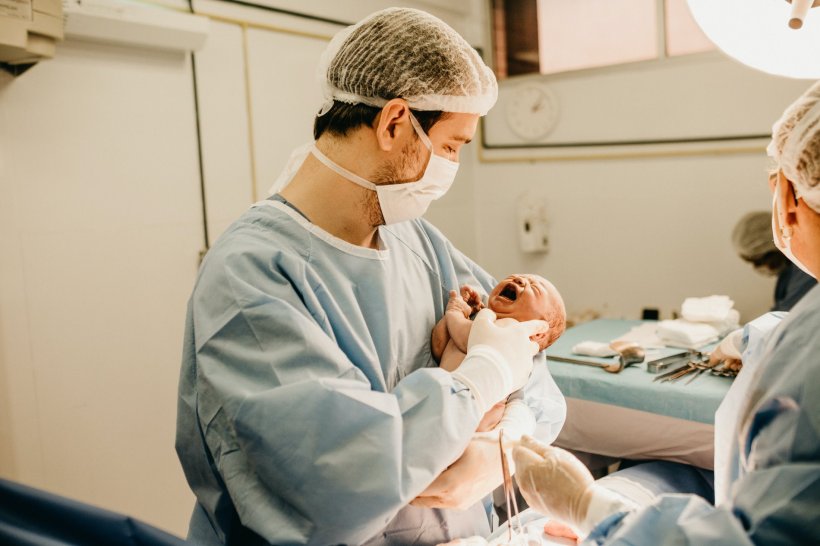
Image source: Unsplash/Jonathan Borba
News • C-section in LMIC
C-Safe: Preventing Caesarean section deaths in developing nations
Mothers in Low- and Middle-income Countries (LMICs) who give birth by Caesarean section are 100 times more likely to die than those having the procedure in high-income countries.
Backed by £2.2 million of Medical Research Council (MRC) funding, the C-Safe project will target healthcare professionals, pregnant women and health systems, initially focussing on India and Tanzania. The five-year programme aims to reduce the risk of post-natal death – for both mothers and babies – as well as life-long health problems that affect women's quality of life and ability to safely have more children.
There is no single solution to this complex problem, and we need a concerted strategy to improve the safety of such procedures and ensure they are only done when needed
Shakila Thangaratinam
Shakila Thangaratinam, Professor of Maternal and Perinatal Health at the University of Birmingham, and co-Director of the WHO Collaborating Centre for Global Women’s Health commented: “Many issues contribute to the high burden of unsafe and unnecessary Caesarean sections in LMICs. There is no single solution to this complex problem, and we need a concerted strategy to improve the safety of such procedures and ensure they are only done when needed. We will work with women, their support networks, and healthcare providers to develop interventions that reduce the risk of Caesarean sections in LMICs – ultimately helping to save thousands of lives. C-Safe will ensure Caesarean sections are done for the right reasons, as well as improving their safety and promoting safe, respectful care in labour resulting in vaginal births, including safe delivery with instruments.”
The intervention will use a comprehensive training programme for health workers, whilst empowering local opinion leaders and mothers in four hospitals each in India and Tanzania – covering 30,000 births in total. The three main reasons for poor outcomes after Caesarean section in LMICs are:
- Inappropriate caesarean sections – 'too many, too soon' or 'too little, too late';
- Unsafe practices in performing the procedure; and
- Sub-standard care in labour not ending in vaginal birth - leading to complicated caesarean sections in advanced labour.
Additionally, attitudes towards caesarean section and use of vacuum or forceps, marginalisation of midwives, dysfunctional teamwork, a culture of blame and medico-legal concerns, influence of family members and communities in decision-making, poor communication skills between women and healthcare providers and amongst clinicians, and inability to determine why caesarean sections are performed worsen the problem.
The five-year programme will promote safe Caesarean section through improving procedures around operations and reducing the number of unnecessary procedures by increasing vaginal births. The research team includes doctors, midwives, experts in study design, patien.blic involvement groups, trainers and policymakers. They are supported by members of the World Health Organization, UNICEF, Jhpiego, professional associations and ELLY Charity.
Source: University of Birmingham
28.02.2022










